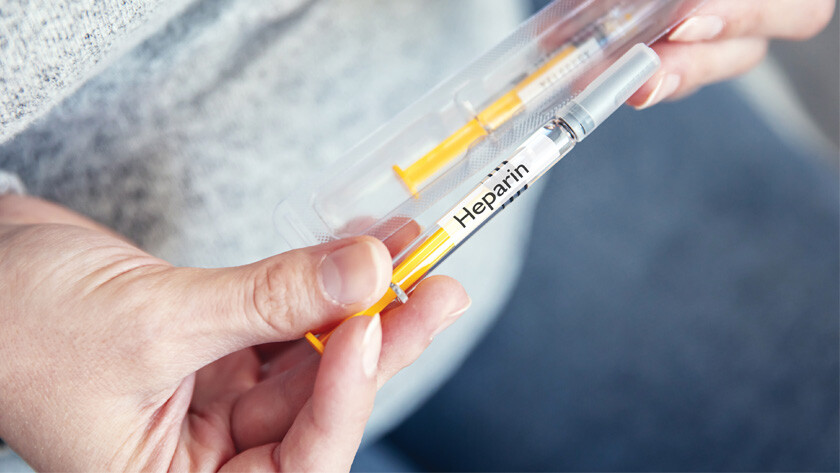Mobile Menu
- Education
- Research
-
Students
- High School Outreach
- Undergraduate & Beyond: Community of Support
- Current Students
- Faculty & Staff
- Alumni
- News & Events
- Giving
- About

Recent results published in The New England Journal of Medicine revealed that heparin increased the chance of survival in patients who are moderately ill with COVID-19.
Heparins are a group of molecules that prevent blood from coagulating. Blood clots are a common symptom of COVID-19; they can be deadly for seriously ill patients by inducing lung failure and heart attacks.
Ewan Goligher and Patrick Lawler are professors in the Department of Medicine and scientists at Toronto General Hospital Research Institute. They are among the leads for a randomized clinical trial that evaluated the efficacy of heparin against moderate and severe forms of COVID-19. The international trial was conducted from April 2020 to January 2021 and involved over three thousand patients in 10 countries.
“While patients are commonly given blood thinners to prevent blood clots in the hospital, we wanted to know if higher doses of heparins could help patients hospitalized for COVID-19 to recover,” says Goligher.
Once admitted to a hospital, a patient with COVID-19 is considered severely ill if they require life support in an ICU. If they do not immediately require life support, they are considered moderately ill.
The researchers found that therapeutic doses of heparins improved survival in patients who were moderately ill with COVID-19, but not in patients who were critically ill.
For the 2,219 moderately ill patients enrolled in the clinical trial, therapeutic doses of heparin were superior to standard care practices in reducing the chance of death with less need for life support. Major bleeding events were rare, with 1.9% in those receiving heparin and 0.9% in those receiving standard care.
For the 1,098 critically ill patients enrolled, therapeutic doses of heparin led to a higher probability of death or prolonged life support in the ICU.
“For moderately ill patients, limited therapies are currently available to prevent the progression of the disease to organ failure and death,” says Lawler, who is also affiliated with the Peter Munk Cardiac Centre at UHN. “These trial results suggest that if we use escalated doses of heparin as a first-line treatment for select moderately ill patients admitted to the hospital for COVID-19, more patients would survive this disease without needing intensive care.”
“Vaccination remains the best defence against COVID-19, because it reduces the likelihood of hospitalization even if a breakthrough infection occurs,” says Goligher.
Funding support received for these clinical trials are listed in the research articles linked below.
ATTACC Investigators; ACTIV-4a Investigators; REMAP-CAP Investigators. Therapeutic Anticoagulation with Heparin in Noncritically Ill Patients with Covid-19(link is external). N Engl J Med. 2021 Aug 4. doi: 10.1056/NEJMoa2105911.
REMAP-CAP Investigators; ACTIV-4a Investigators; ATTACC Investigators. Therapeutic Anticoagulation with Heparin in Critically Ill Patients with Covid-19(link is external). N Engl J Med. 2021 Aug 4. doi: 10.1056/NEJMoa2103417.